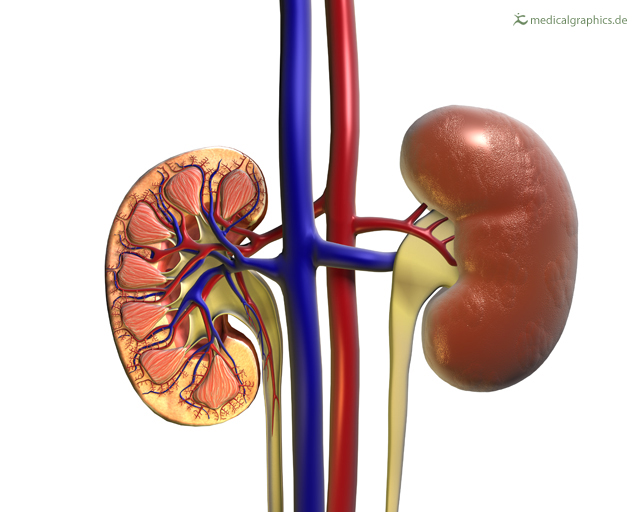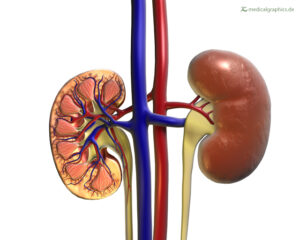
By Omboki Monayo
Nairobi, Kenya: Dear reader, when were you last tested for kidney disease? If you haven’t been tested yet, it’s time you did! Talk Africa explains why.
As we mark World Kidney Day, our focus shifts to Kidney disease, a condition that can affect individuals regardless of age or race, which presents particular challenges for women.
Writing on the Lancet Pathologists page, Dr. Christophe Arzur describes kidneys as “two bean-shaped organs that are the size of a fist”. The primary function of your kidneys which are situated deep in the abdomen beneath the rib cage, is to eliminate toxins and surplus water from your bloodstream. Additionally, kidneys play vital roles in regulating blood pressure, generating red blood cells, and maintaining bone health.
These remarkable organs oversee the levels of various minerals and molecules in your bloodstream, such as sodium and potassium, and play a crucial role in regulating blood acidity. Every single day, your kidneys meticulously manage the balance of salt and water in your body to ensure that your blood pressure remains stable.

According to Kate Wambui, a nephrology nurse at AAR Health, kidney disease is a silent killer that creeps up on the patient without notice.
“You can lose up to 60 percent of kidney function without noticing, which is why getting tested to detect malfunction, disease or complications is so important,” she said during a Truth FM morning show on Wednesday.
While both men and women face the risk of developing Chronic Kidney Disease (CKD), statistics suggest that women may be even more vulnerable to its effects. CKD stands as a significant health concern for women globally, affecting approximately 195 million individuals and ranking as the 8th leading cause of death among women, claiming 600,000 lives annually.
Among the various types of kidney diseases, there are certain conditions that tend to affect women disproportionately.
In an editorial published in the National Institutes of Health PubMed Central (PMC) Journal, Giorgina Piccoli and associates recognize the challenge posed by kidney disease to women’s health.
“Women have unique risks for kidney diseases: kidney diseases, as well as issues related to access to care, have a profound impact on both the current and next generations. Advocating for improved access to care for women is critical to maintain the health of families, communities, and populations,” the editorial reads.
For instance, Lupus Nephritis (LN) is a kidney ailment stemming from an autoimmune disorder known as systemic lupus erythematosus (SLE). SLE prompts the body’s immune system to attack its tissues, leading to kidney damage that can progress to kidney failure. Given that SLE predominantly affects women, particularly during their childbearing years, women constitute the majority of LN cases.
Another prevalent kidney complication in women is pyelonephritis, a type of kidney infection that typically arises from a bacterial urinary tract infection (UTI). If left untreated, UTIs can ascend to the kidneys, resulting in pyelonephritis. This condition poses severe risks, including sepsis, which can be life-threatening. The anatomical differences between men and women make UTIs more common in females, underscoring the importance of proactive measures for prevention and treatment.
Getting pregnant and carrying a child poses additional challenges for women with kidney disease. CKD, particularly in its advanced stages requiring dialysis, can impair fertility. However, with intensive treatment, including frequent dialysis sessions, conception remains a possible but challenging prospect. Pregnancy itself poses risks for women with kidney disease, with conditions like Acute Kidney Injury (AKI) and preeclampsia (PE) potentially leading to the development or worsening of CKD. Preeclampsia, in particular, poses serious risks to both maternal and fetal health, underscoring the importance of closely monitored prenatal care for women with pre-existing kidney conditions.
Limited access to healthcare presents another significant hurdle, especially in resource-challenged regions. According to the Kenya Healthcare Federation (KHF) head Dr Amit Thakker, the country suffers from “limited access to health care facilities, lack of adequate personnel and expertise to address the medical needs and poor infrastructure where most facilities do not have the proper facilities to handle the medical challenges”.
“Ironically the facilities that are highly equipped with specialized equipment do not have effective processes and personnel in place to execute the tasks, access to medical records, and healthcare financing,” adds Dr. Thakker.
In countries where abortion is illegal, septic abortions are a leading cause of AKI, highlighting the dire consequences of restricted access to safe reproductive healthcare. Moreover, socioeconomic and cultural factors can exacerbate disparities in access to renal replacement therapies (RRT), such as dialysis and transplantation. Despite women being more likely to donate kidneys, they often face challenges in receiving these life-saving treatments when needed.
Countries with limited resources also have the challenge of providing equitable access to healthcare for kidney disease patients. For instance, the case of Kenya underscores the urgent need for expanded renal services and infrastructure to meet the growing demand for kidney care. A report dubbed the Kenya Health Facility Census and published in January shows that renal or kidney services are available in just two percent of the 12,384 health facilities assessed in the country.
To tackle the distinct obstacles encountered by women with kidney disease, a comprehensive strategy involving policy changes, improvements in healthcare services, training for professionals, and empowering communities is necessary. Prioritizing fair access to care and deploying evidence-backed methods can protect the kidney health of women globally and alleviate the impact of CKD on both individuals and healthcare systems.
The PMC editorial authors are also recommending further research into CKD in expectant women to gain a deeper understanding of kidney disease and its management in this vulnerable but important category.
“Focused studies on the unique contribution of sex hormones, or the interaction of sex hormones and other physiology, is important to improve our understanding of the progression of kidney diseases. There is a clear need for higher awareness, timely diagnosis, and proper follow-up of CKD in pregnancy. In turn, pregnancy may also be a valuable occasion for early diagnosis of CKD, allowing planning of therapeutic interventions,” the document reads.
Meanwhile, these are some of the preventive ways to take care of your kidneys, before you end up in hospital. Ms Wambui is advising women and men to choose a healthy lifestyle.
“Avoid drinking alcohol and smoking. Exercise so that you do not become overweight. Reduce your intake of junk food, which tends to have high levels of salt that can elevate your blood pressure,” says the nephrology nurse.













